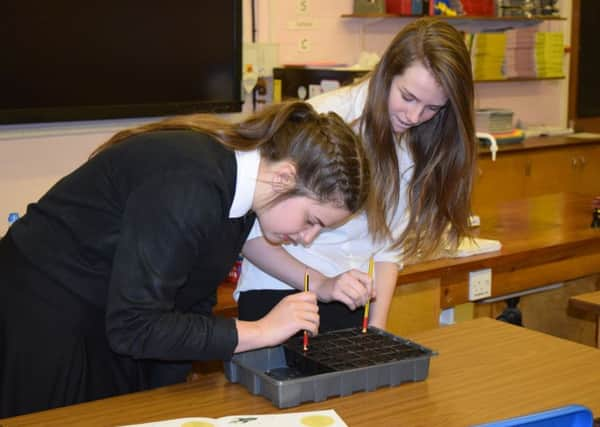Now that IS rocket science


Last September, 2kg of rocket seeds were flown to the International Space Station (ISS) on Soyuz 44S where they spent several months in microgravity before returning to Earth in March.
Through Rocket Science, an educational project launched by the RHS Campaign for School Gardening and the UK Space Agency, the Academy is one of up to 10,000 schools to receive a packet of these seeds, which they will grow alongside seeds that haven’t been to space and measure the differences.
Advertisement
Hide AdAdvertisement
Hide AdThe students won’t know which seed packet contains which seeds until all results have been collected by the RHS Campaign for School Gardening and analysed by professional biostatisticians.
“We are very excited to be taking part in Rocket Science,” said CYA science teacher Jo Biglands. “This experiment is a fantastic way of teaching our students to think more scientifically and share their findings with the whole community.
“Our Academy has also been selected to participate in additional research. A selection of the plants that our students grow will be sent off for further testing looking at the nutritional value of the plants”.
Rocket Science is just one educational project from a programme developed by the UK Space Agency to celebrate British ESA astronaut Tim Peake’s Principia mission to the ISS and inspire young people to look into careers in STEM (science, technology, engineering and maths) subjects, including horticulture.
Follow the project on Twitter: @RHSSchools #RocketScience